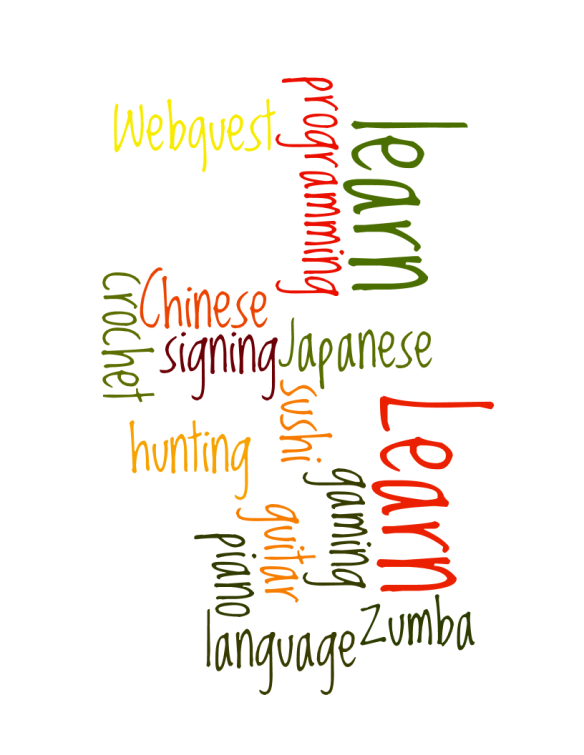
Last week we learned all about personal learning networks and were tasked with creating our own. I have ended up following a lot of educators and science blogs, places that are proving to be so useful to me as a pre-service teacher. Here are some of the blogs I now follow:
Born to Learn
These guys have a lot of stuff on the importance on collaborative and experiential learning. Lots of interesting animations as well.
Education Rethink
This is a blog created by a teacher in Phoenix where he shares his thoughts on education, technology, and current issues.
GOOD Education
A site collecting blogs covering all forms of popular culture with a section dedicated strictly to education.
Science Blogs
Being a science nut I’ve found this site really interesting and useful in keeping me up to date on current issues in science.
Hack Education
A blog created by a technology writer and ed-tech advocate covering all the current trends within technology and education.
I’ve also increased the number of people I’ve been following on Twitter. These are mainly educators with educational philosophies paralleling mine. It’s also been super easy to follow them by putting them into a PLN list on Tweetdeck.
Here are some tweeps I now follow on twitter:
@nashworld Sean Nash – Academic Technology Instructional Specialist & Marine Biology teacher. Interested in all things that move classrooms toward a more student-centric future.
@StacyCBaker – Stacy Baker – a middle school technology integrator (former high school biology teacher) in NYC.
@inveterategeek – Elizabeth Zodda – inveterate geek (code for high school science teacher)
@hbarlaam – Holly Barlaam – High school science teacher, currently teaching biology at college prep school. Have also taught in public schools (biology and AP Environmental Science).
@gardenglen – Glen Westbroek – Husband/Father, Middle Level Science Literacy Teacher, Intel Teach® Senior Trainer, District Science Specialist, Use Tech. 2 support Inquiry, Scouter
@RitaZ – Rita Z – EFL teacher in Rosario, Argentina, a proud Webhead, CALL Consultant, Director of TechTools4Educators
@2learn2 – Steve – Passionate about everything to do with teaching and learning.
@johntspencer – John T. Spencer – Dad. Husband. Teacher. Writer. Perpetual bender of paper clips. Impatient doodler. Philosophical wanderer.
@ShellTerrell – Shelly S Terrell – Education thought-provoker, The 30 Goals Challenge author, International Speaker, #Edchat founder, VP of Edu Outreach @Parentella, SC Mgr @TheConsultantsE
@rushtonh – Rushton Hurley – Japanese language, digital video, teacher training, and saving the world from ignorance. Some juggling, too!





